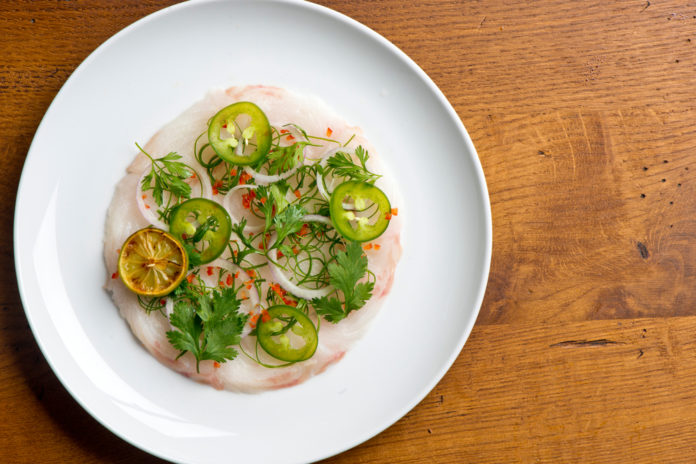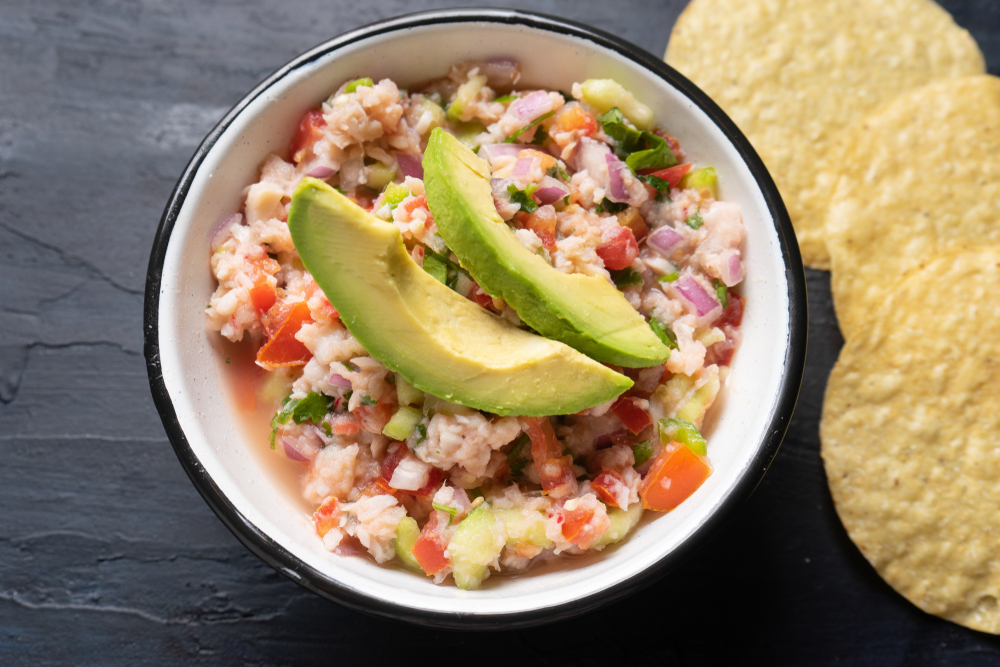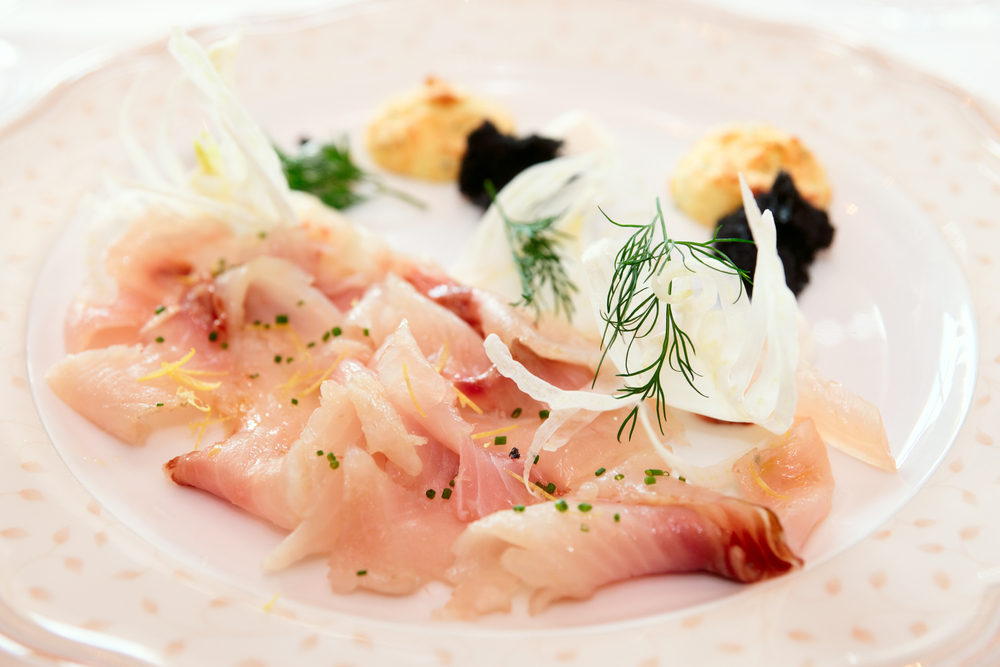As temperatures increase, you may be looking for ways to cook without heat. After all, there’s nothing worse than using the oven on a hot day. That’s where raw dishes—think salad, charcuterie and sushi—come into play. While many at-home chefs are intimidated by the thought of preparing raw fish dishes at home, there’s no reason to be! With a little bit of knowledge and confidence, there’s no shortage of delicious, cool seafood recipes to enjoy throughout the summer.
Below are a few dishes to inspire your next meal—but first, we’ll answer some questions about sourcing, handling and preparing raw fish.
A Few Things to Know About Preparing Raw Fish
1. What types of fish can I eat raw?
When preparing a raw meal, look for sushi-grade fish that has been safely caught, flash-frozen and stored to guarantee freshness. A variety of species (including Tilapia) meet these requirements, but there are some, such as trout and largemouth bass, that should never be eaten raw. If you’re unsure, ask the fishmonger at your grocery store.
2. How can I find the best quality fish for raw preparations?
Generally speaking, it’s best to use fish that have been raised responsibly. Tilapia farms in Mexico, Honduras and Indonesia, for example, have some of the highest standards when it comes to quality and care. Looking for certifications on seafood labels can help determine which fish you should buy.
3. What do I need to prepare raw fish dishes?
Your usual kitchen appliances and utensils, including a very sharp knife to evenly cut or slice the fish.
Now that’s done, let’s get onto the good stuff.
6 Raw Fish Dishes to Try This Summer
Ceviche
Ceviche, popular in Latin America, is technically a cooked dish because the citrus juice that’s used as a marinade cures the fish—but since it’s served cold, it still deserves a spot on this list. The dish is most often made with shrimp, squid, Tilapia and other white fish. That said, it’s easy to adapt depending on your personal preferences, so feel free to experiment with other species and flavors.
Sushi and Sashimi
Sushi and sashimi are both of Japanese origin. While sashimi is often served without seasoning, garnish or sauce—to let the flavor of the fish really come through—sushi is eaten with sumeshi (vinegared rice). The most popular fish choices include salmon, tuna, squid, mackerel and octopus—but there are plenty more to try. Tilapia, for example, has a sweet, mild flavor profile that works especially well for this preparation.
Poke
Travel to any of the Hawaiian islands, and you’re bound to come across poke: raw, marinated fish served over rice. To prepare it, cut your preferred fish (Tilapia, tuna and salmon are all great options) into large cubes and marinate in a ponzu, spicy mayo or other sauce. Poke is delicious when eaten as an appetizer or main dish, and can be topped with a variety of fresh ingredients. It tastes great when paired with avocado, edamame, mango, seaweed salad, cucumber and radish.
Crudo
This is the perfect appetizer for a summer meal. Crudo (the Italian and Spanish word for “raw”) is used to describe fish that’s been dressed in oil and a citrus juice or vinegar. While some recipes call for additional herbs and spices, it’s best to keep this one simple and let the fish be the star.
Carpaccio
Carpaccio, a dish of thinly sliced meat, was first served in Venice, Italy in the 1950s. While it’s traditionally made with beef or venison, seafood varieties have also become popular—you can try it with tuna, Tilapia, scallops and other fish. But the best thing about this dish is how easy it is to make: simply slice your fish of choice, drizzle with olive oil and lemon juice, and top with your favorite garnishes (arugula, herbs and capers tend to work well).
Tartare
Tartare is another raw dish that is usually made with beef. It consists of chopped or minced meat that has been mixed with a binding agent (such as dijon mustard or another sauce of a similar consistency), is topped with an egg yolk, and served with crackers. Today, you can find tuna tartare on many restaurant menus—but there’s no reason you can’t try it with Tilapia at home.
Preparing raw Tilapia and other fish dishes isn’t as intimidating as you might think. And with so many different raw recipes out there, you have plenty of opportunity to hone your “cooking” skills.
Looking for more ways to stay cool this summer? Try these five recipes that feature raw Tilapia.
Photo Credits: Marie Sonmez Photography / Shutterstock Inc., Guajillo studio / Shutterstock Inc., Louno Morose / Shutterstock Inc., Kondor83 / Shutterstock Inc.









